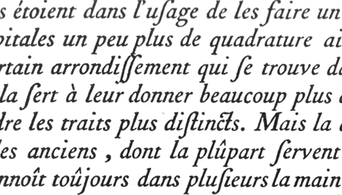
If you'd like to participate in this blog hop, please contact me. Now, read on for more!
| Jennifer Eifrig, Author |
|
 This week I'm participating in a writers-around-the-world blog hop, in which writers of all types answer questions about their work. I was tagged by fellow Cogwheel author Paul Freeman, whom I interviewed in December 2012, and whose epic fantasy novel Tribesman is really a must-read. You can visit his blog here to read his Next Big Thing post. If you'd like to participate in this blog hop, please contact me. Now, read on for more!
0 Comments
 My father loves to say that life is what happens when you're planning something else, and he's pretty much right. Best laid plans and all. I had really, really hoped to be done with the first draft of Sequel #1 (ack, my kingdom for a title!) by the end of 2012, but alas, no such luck. I was delayed for a month by illness in November, and then the holidays are never a great time to accomplish much of anything except eating and drinking. I was just starting to get my arse in gear when bang, my mother had hip replacement surgery and then a heart attack while in the hospital. Good news is that if you're going to have a heart attack, the best place to do it is while you're already in the hospital. She's home now, and recovering nicely. Still very scary, and very distracting. And then, of course, I've come down with some upper respiratory virus brought home by my children. Daddy is sick too. I've now lost track of time, as my carefully planned schedule shattered and fell to pieces. Thankfully, I do have my writing to fall back on. The "day" job work, as much as I enjoy the paycheck, isn't nearly as soul-satisfying. In an act of defiance of the universe, I spontaneously decided to enter a "first look"-type writing contest whose deadline was today. The contest fee supports a good cause (the local writers conference) and I figured I could use the critique. And, since the finalists will have one week to submit a polished MSS in March, I figured that if by chance I got that far, I could use a deadline to keep me on track! Also, I'm very happy to share with you an interview I recently gave to Mandy Barnett. She has a nice author interview series going on, and I encourage my gentle readers to visit her blog for more great stuff. Detours are just detours. If you keep the destination in mind, you'll be on the right path, even if it seems to lead you the wrong way.  I have to say, I'm really enjoying this interview gig. I feel as though I'm making friends all over the place. It's a little like being a rock star. Well, a very little, but still, it's fun. My interview this week is with fellow Cogwheel Press author Paul Freeman, whose epic fantasy Tribesman was released in November 2012. If you like sword-and-sandals-type stuff, run, don't walk, to pick up either the Kindle or the paperback edition. I finished it in 24 hrs, partly because it's a super-tight piece of work at 80,000 words (more on that later), and partly because it's so engaging (and horrifying). Paul is a fun and funny fellow who has other literary irons in many fires, ranging from urban fantasy to steampunk to horror to literary fiction. He's a contributor to the steampunk compilation Strange Tales From the Scriptorian Vaults, and has a horror collaboration coming out in spring 2013. On some level, I know I ought to feel challenged by his prowess, but mostly I find it inspiring. Paul's a friendly sort; you can get to know him better by reading his blog, following him on Facebook, Goodreads, Amazon, & Twitter, and of course by buying his books. Read on to learn more! Paul Freeman is from Dublin, Ireland, where he works, plays and writes. In the past he has lived in Germany and America but is now content to keep his roaming to the worlds he creates and writes about.  In between unspeakable tragedy and the busy-ness and joy of the holidays, my book release kind of took a back seat, but after Christmas I was delighted to sign off on the version that will become the paperback edition in a few weeks. (Can't wait that long? Check out the Kindle version now.) In the process I've learned a bit more about electronic publishing - enough to realize that I'm wandering in a dense wilderness without a map, metaphorically speaking. In the fall of 1986, I was a freshman in college, and my first term paper was due. Daunted by the thought of attempting the typewriter, I made an emergency purchase of my very first computer (a Mac 512KE, signed by Steve Jobs & Steve Wozniak, but that's another story), and from then on I've composed my writing almost entirely in digital media. In high school, my essays were submitted in blue-black cursive on white lined paper; in college, they were produced on a dot matrix printer that, while painfully slow by modern standards, nevertheless allowed the use of "advanced" features such as italics. Ah, italics. (Not to be confused with oblique type - again, another story.) The darling of aspiring and over-enthusiastic writers everywhere, italics are used for a whole host of purposes - for emphasis, to indicate foreign-language words, for titles of book-length materials and plays, and to indicate conventions unique to a specific piece of literature. For example, I use italics to indicate interior (non-spoken) dialog, either telepathic between characters, in which case I include quotation marks, or internal prayer/communion with the divine, in which case I leave off the quotation marks. The trouble with italics is that, apart from the title conventions mentioned above, there's no hard-and-fast rule about when to use them and when not. Several writers and readers I know despise italics, finding them irritating, self-important, and/or confusing. Others love them, and key off the visual text to further or deepen the meaning and/or impact of a particular word or clause. Here's my trouble with italics - they can disappear from one electronic format to another, i.e. going from Word to Kindle. Anyone who is planning on electronically publishing should be aware of this issue and make sure that you check and double-check the formatting. More generally, if you're using italics in your writing, be sure to be consistent. Don't start and stop. Some readers won't notice, but others who are more visual (I'm one of those) certainly will, and will find it jarring to have to figure out if the change from italicized text to plain text has meaning, or if it's simply a formatting glitch. The same is true for indents. Almost always these days, in either electronic or traditional books, a new paragraph is indicated by a standard-sized indent. In manuscripts in the days of the typewriter, this indent was achieved by pressing the Tab key, but nowadays word processing software has gotten so clever that it can indent automatically. Tabs are clunky and I don't recommend using them, but again, be sure to double check that those nice half-inch indents come through when you're moving from Word to e-format. I've learned a lot in the past couple of weeks, and hopefully my observations  Happy new year, dear readers! Once again, I've had the true pleasure of interviewing a fellow spec fic author, Cindy Koepp, whose sci fi novel Remnant in the Stars was released last July by Under the Moon Publishing. She also has a book of math puzzles for middle-grade students called Crunchy Word Problems and Other Brain Challenges, and writes a free serial fantasy novel called Condemned Courier on Jukepopserials.com. Cindy's one of those people that challenge my geek credentials big time, and it was a lot of fun to learn about her, her writing, and her plans for world domination - just kidding. I think. ;) You can visit Cindy's web site, read her blog and serial, and buy Remnant In the Stars and Crunchy Word Problems by following the links. And of course, read on for more! Cindy Koepp lives in Texas with her parrot and spends nine months of the year mutating the minds of children. In addition to a teaching certificate from the University of Texas at Austin, she has a Bachelor of Science degree in Wildlife and Fisheries Sciences from Texas A&M University. In her time away from school, she does needlework, experiments with recipes, and works on her writing. |
Archives
January 2015
Categories
All
|